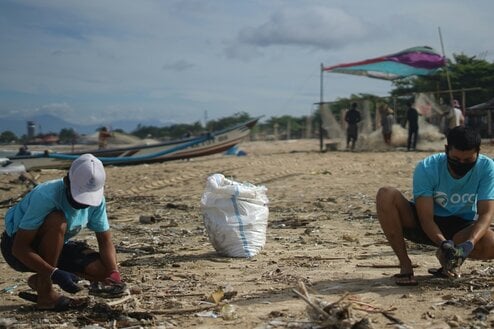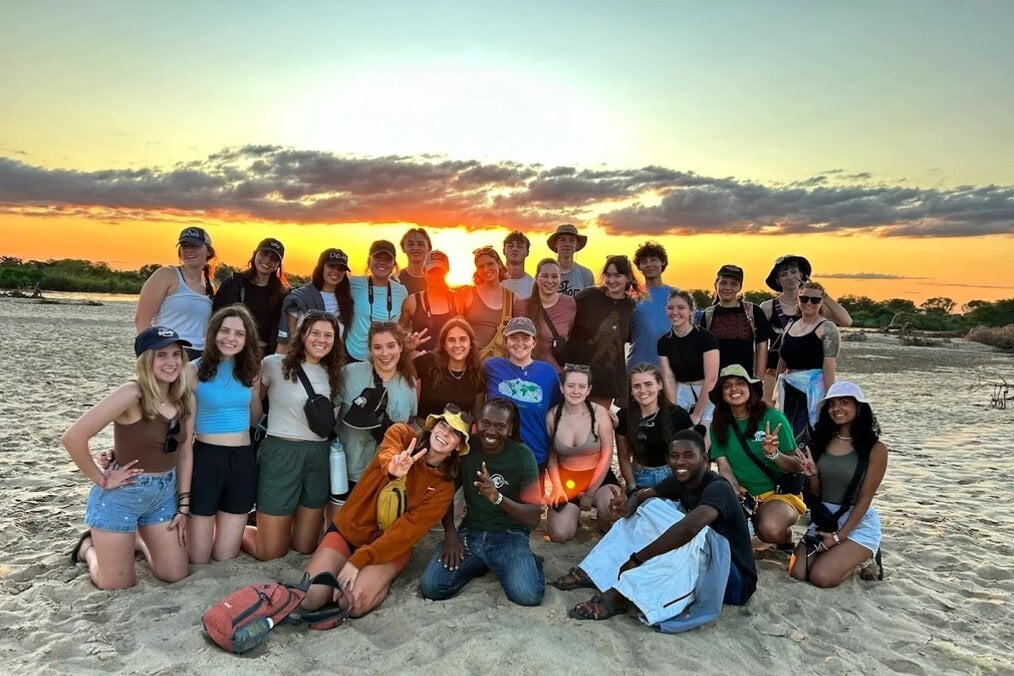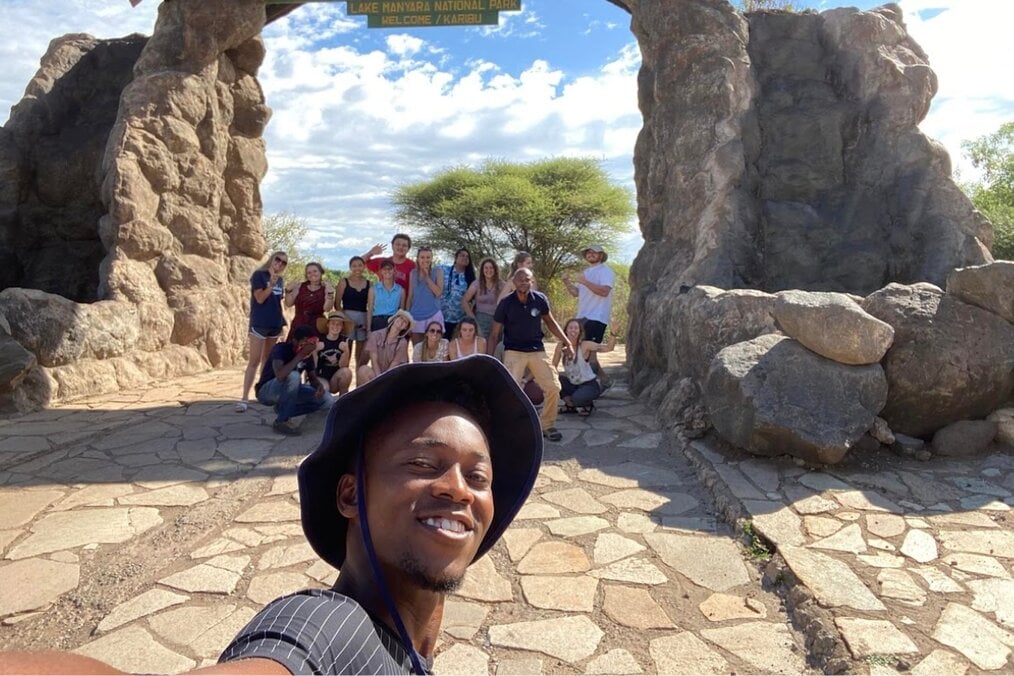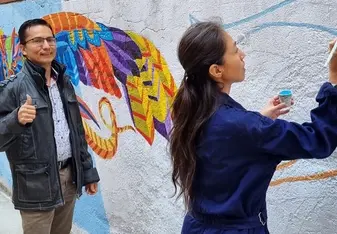
Volunteer Abroad Scams: How to Spot & Avoid Them
Want to volunteer abroad but unsure how to find the right organization? Read on for our best tips on avoiding volunteer abroad scams and finding the right organization for you!
Volunteering abroad is a meaningful way to explore the world while making a positive impact. Most programs are run by passionate, reputable organizations—but as with any type of travel or opportunity, it’s a good idea to do a bit of research before you commit. While scams and unethical programs aren’t the norm, being mindful during your search will help ensure you find a volunteer experience that’s truly beneficial for both you and the community you're supporting.
Read on to learn how to avoid volunteer abroad scams and instead devote your time and energy to a worthy cause!
Are volunteer abroad scams common?
No! The good news is that there are many more authentic and reputable volunteer abroad programs that outweigh the scams. However, scams do exist, especially in an industry where people are traveling into unknown territory. Volunteering abroad draws well-natured people to unfamiliar locations, and this can sometimes make them a target.
Common volunteering scams
Volunteer abroad scams can come in many different forms, and the term “scam” may mean different things to people. While some scams come in the form of financial theft, another may come in the form of unethical practices or misinformation.
Keep an eye out for these red flags; it may be a sign of a volunteering scam:
- Fake organizations: Some scammers pose as a real volunteer organization in order to deceive eager volunteers. Once the volunteer pays for any administrative, program, or deposit fees, the scammer will ‘ghost’ them.
- Unethical practices: Some organizations may use unethical practices, whether by making false claims or misappropriation of funds. This is common in orphanages which may misuse donation funds or in animal sanctuaries which abuse animals (such as elephants) to maximize tourist interaction.
- Unexplainable fees: If a program can’t explain where their fees go, they may be taking advantage of volunteers and the beneficiary. Fees aren’t uncommon as they often cover accommodation, meals, transport, and support workers and the organization itself. However, the program should be able to explain exactly where its fees are going.
- Lack of information: If the volunteer organization doesn’t provide enough clarity, it may be the case that they’re hiding or withholding information that would otherwise drive away volunteers. As a volunteer abroad, you should know exactly what you’re getting yourself involved in.
- Voluntourism: While voluntourism isn’t inherently a bad thing at all, it often focuses more on the traveller than the target beneficiary. Voluntourism programs are a great way to see the world while still getting involved in a good cause, but volunteers whose sole priority is to make a difference may be misled by these programs. Researching the difference between volunteering and voluntourism can help you understand exactly what you want from your experience.
- Underqualified volunteers: While many volunteer positions are entry-level and beginner friendly, not all are. Ask yourself if you need to be qualified to volunteer for an important role. For example, no reputable organization would allow someone to volunteer in a medical role without the appropriate experience. Or, a reputable orphanage should require background checks on potential volunteers.
Read more: How Do Communities Abroad Benefit from International Volunteers?
How to avoid volunteering scams abroad

Now that you know some of the warning signs of volunteer abroad scams, you can differentiate the authentic and ethical from those that aren’t.
Here’s how you can avoid volunteering scams and volunteer abroad ethically:
1. Find reputable organizations online
With so many options online, it can be difficult deciding where to start. You can find many reputable volunteer organizations online right here at Go Overseas, where you know if a volunteer organization is legitimate! Volunteer programs on Go Overseas are not only experienced and thoroughly vetted, but they come in a wide range of opportunities.
From marine conservation to community development and much more, there are endless forms of volunteer abroad programs you can choose from. When choosing a volunteer program, consider the following:
- Your goals: What kind of impact do you want to make? Ethical volunteering spans a range of sectors, from social services, education, environmental protection, health, and more. Start by identifying a cause you care about; this will help you find a program that feels truly meaningful!
- Country: Think about where you want to go. Do you thrive in tropical or cooler climates? Are you drawn to a particular culture or language? Choosing a destination that excites and energizes you can make your experience more fulfilling—and help you contribute your best.
- Your skills and interests: What skills do you already have, and what would you like to learn while abroad? While volunteer organizations ideally want many volunteers, some positions may require prior experience or qualifications. Be realistic about what you can offer and look for programs that match your current skill set—or help you grow new ones.
2. Research the organization’s goals and initiatives
Once you’ve found a volunteer organization that interests you, take time to dig into their mission and the specific work they’re doing. Broad categories like “environmental volunteering” can mean a wide range of things. Are you helping with marine conservation, eco-agriculture, reforestation, or something else entirely?
Don’t forget to investigate even further and take a look at the day-to-day work. If you’re applying to do marine conservation volunteering, will you be saving turtles, measuring ocean acidity, or removing and recycling plastic from the ocean?
There are many ways that an organization can contribute towards a healthier environment or community. It’s important that you understand what initiatives they have to achieve these goals, whether they’re ethical, and how it will influence your role within the program.
Read more: Why You Should Pay to Volunteer Abroad
3. Check for transparency
If you’re having a hard time finding information about the organization or getting in touch with them, this may be a red flag. A reputable organization should be able to tell you exactly what is and isn't included in the program, and there shouldn’t be any hidden fees.
If you’re paying a program fee, ask exactly where your money goes and how it benefits not only your experience but the local community.
As a potential volunteer, you should be able to:
- Easily look up information on your host organization
- Know their address, local staff names, and contact details
- Communicate with program coordinators and before you arrive
- Understand the full cost of the program and what’s included
Read more: How Much Does It Cost to Volunteer Abroad?
4. Check out reviews & alumni experience

A reputable and experienced volunteer organization will have many review and shared alumni stories which can attest to its unique and authentic volunteer experience. Any organization that doesn’t allow reviews or alumni stories could be considered as illegitimate or dishonest.
No program is perfect, and a reputable organization will always welcome constructive feedback. Any negative thoughts may help you consider or anticipate difficulties in certain aspects, even if the reviews are positive on the whole.
If you’re struggling to find any reviews, you can always search right here on GO! Volunteer programs on GO have thousands of real and verified reviews which give a clear picture of life as a volunteer. You can also read up on staff interviews to gain deeper insight into the people who work on these programs.
“I have always had a deep passion for volunteering, but it was time to extend my efforts beyond the United States. This decision turned out to be the best one I have ever made.” - Marrissa, Volunteering in Cape Town, South Africa with IVHQ
5. Ask plenty of questions
Don’t be afraid to reach out! Connecting with the organization directly, whether via email, video call, or phone, is one of the best ways to get a feel for the program and organization. It’s never a bad thing to ask questions or for more clarity. A reputable organization will be happy to dive into details with you.
Important things to ask about:
- Community goals: What does the volunteer organization aim to achieve and how do they go about doing so? They should be able to answer clearly and concisely about how their projects help the supposed beneficiary.
- Where your money goes: If there’s a program fee, ask for the breakdown of where it goes. The volunteer program coordinator should also be able to justify where your money is going. Paying to volunteer isn’t uncommon, and in fact helps sustain charities who rely on donations to pay for resources, accommodate volunteers, and so on.
- Responsibilities & work schedule: A reputable volunteer organization will highlight volunteer responsibilities and an accurate representation of the worker’s schedule. Some organizations may romanticize the idea of volunteering in order to entice volunteers, whereas others will be much more direct and apparent about the level of hard work and responsibility that goes into a position.
What to do if you come across a volunteer abroad scam
If you’re even caught up in a volunteering scam, here are some of the steps you can do to minimize the damage and prevent others falling victim:
- Notify your bank: If you’ve already paid a fee, be sure to notify your bank that you’ve been scammed. They may be able to reverse any transactions made.
- Leave a review online: Whether or not the “damage” has been done, it’s important to share your experience online in order to prevent it from happening to others. People will value your insight greatly and be thankful that you’ve exposed these scams.
- Report the incident: You can also report the scam online. If you’re in the US, you can report the case to the Federal Trade Commission, or to ActionFraud if you’re in the UK.
- Document your communication: If you are or have already communicated with an organization that you’re not entirely sure of, document any emails or messages that you’ve shared. This will help you highlight information in order to make an informed judgement or gather proof in the event of a potential scam.
Explore reputable volunteer organizations abroad
Volunteering abroad can be an exciting and impactful experience, but like any travel experience, it can come with a few unknowns. Maybe the work is more demanding or the volunteer organization isn’t all that it seems to be. The good news? You can avoid most surprises by doing your research upfront.
When applying to volunteer abroad, check for transparency, alumni experiences, and reviews online. Don’t be afraid to ask important questions or request a call with a member of staff, because while they want capable volunteers, you also need to understand what this opportunity entails to be fully committed!
Read more about volunteering abroad:






